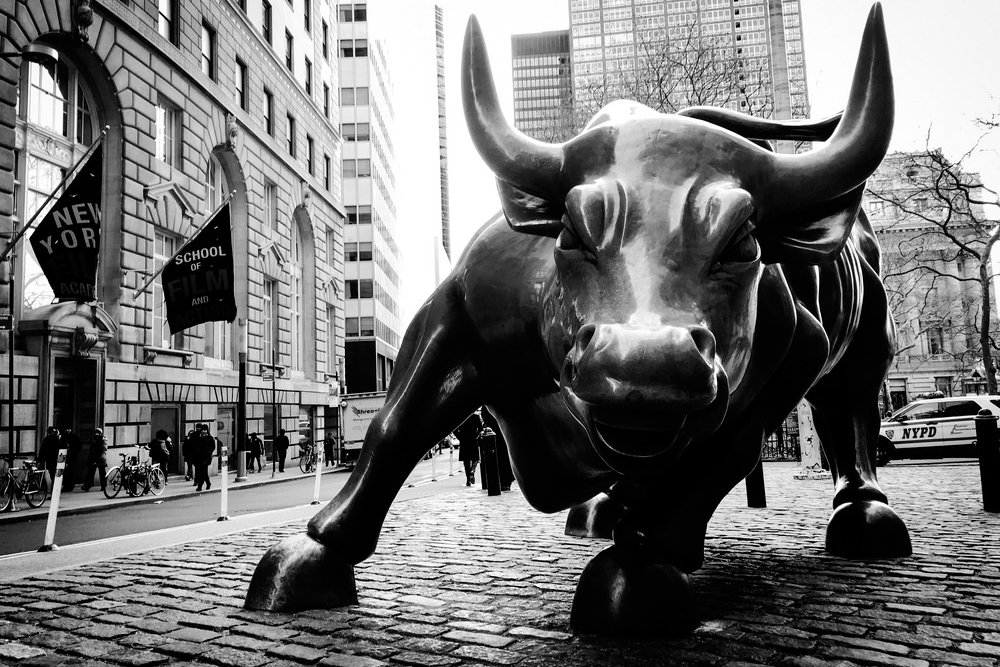Table of Contents (click to expand)
Some rich people may be more immoral than others, but it is difficult to make a generalization. It is also possible that some rich people are more immoral than others because they have more power and the opportunity to act immorally.
The argument seems indisputable: Wall Street bankers, stockbrokers, Silicon Valley capitalists, Instagram influencers, Scrooge, Homer Simpson’s boss and perhaps yours too… the list is endless. However, could the stereotype be a lie the less-affluent tell to console themselves that there is at least something the rich lack: virtuousness or morality? Is this proposition corroborated by science or completely unfounded?

Money Is The Root Of All Evil
Aphorisms have rarely been factual. The oldest ones, at least, are based on opinions, and opinions change. Not more than 500 years ago, when money in a community was believed to be limited, the affluent paid or rather bribed churches with huge sums of money to be absolved of their guilt or penitence for being fortunate, for “stealing” the rightful share from the poor or unfortunate. Then capitalism happened. Money or wealth was no longer material and therefore not limited, but immaterial and therefore unlimited.
Money today becomes material only when you don’t reinvest your profit, but instead sell your shares. Capitalism opened the floodgates and in poured an unprecedented amount of wealth, whatever its form. However, the affluent are no longer seen as fortunate knaves, but rather perceived as heroes. They provide the bread and butter for billions of people. They don’t pay penalties out of repentance, but instead sponsor charities out of humility… except that they don’t. Around 13% of all charitable giving comes from the lower 20% earners of the economy, whereas only 3% is the contribution of the upper 10%.

A lack of generosity is attributed to a lack of empathy: the ability to “read” someone else’s mind or step into their shoes, and rich people are notoriously non-empathetic. In a study conducted by psychologists, participants were shown two videos while their heart rates were being monitored. The first video showed a man describing the numerous steps involved in the construction of a patio, whereas the second video showed small children who were suffering from cancer.
The social status of the participants was gauged by a standard questionnaire asking about their family’s income and education. Unlike the high-earning participants, the heart rate of low-earning participants declined while watching the second video, the one featuring children afflicted with cancer. A slow heart rate is typically associated with engaging the feelings and motivation of others. It is therefore no surprise why the affluent seem to be shamelessly bad listeners. Mark Zuckerberg, portrayed by Jesse Eisenberg in The Social Network, was abstracted and doodling throughout his deposition. He didn’t care then… what makes you think he does now?
In fact, even their charities are dictated by ulterior motives that are understood tacitly: to flaunt Lexus sedans and pearl necklaces. In 2012, among the 50 largest charitable gifts, none went to organizations dedicated to social welfare or poverty. They were instead lavishly bestowed upon elite universities and museums. Can a gala be held in a bookstore?

Also, it comes as no surprise that people who possess a Machiavellian acumen are deemed to have a vocation to sell and market commodities. Those who don’t are even advised to do so. We associate guile with marketing for the simple reason that marketing is fraught with moral dilemmas. We rarely read about a multibillion-dollar industry that earns its wealth without transgressing any moral boundaries. Technological companies exploit labor and cosmetic companies sell narcissism.
Why do shareholders condone this? Because the objective of business is to maximize profit at any cost. This blatant indifference or remorselessness is reflected in tax evasion and the move fast and break things ethos of Silicon Valley’s unicorn start-ups. The wealthy’s tendency to lie and cheat was highlighted in a study in which a participant was rewarded with cash after five apparently random die rolls. The wealthier participants consistently reported scoring more than 12 points, even though the game was rigged so that achieving a score higher than 12 points was impossible!
The transgressions aren’t limited to cheating. Statistically, the wealthy, recognized by their expensive cars, drive more recklessly, run red lights, cut motorcyclists, imbibe more and tend to practice adultery more than their poorer peers. In a study, wealthier individuals were found to be more liable to steal candy from an unsupervised jar… that was meant for children.

The Self-Fulfilling Prophecy
Isn’t it highly unfair to generalize? Surely not every rich individual is immoral? Is every silver spoon, Harvard graduate as dorky as Bradley Cooper’s character in Wedding Crashers? Eminent Stoic Marcus Aurelius’ 100-paged Meditations can be summarized with three words: acceptance, of your nature and Nature’s nature, including her penchant for change and death; camaraderie, with your friends and also your enemies; and finally, abstinence, from fame, pleasure and luxury, for they are pursued only and only by the unprincipled.
For several millennia, culture has conditioned people to link the two to the extent that the correlation, and its converse, now seem obvious; they are entrenched in our subconscious. Jesus and Buddha were poor and, of course, noble and virtuous. The contempt is best demonstrated by a study conducted by Amit Bhattacharjee, Jason Dana and Jonathan Baron. In the study, participants were asked to evaluate firms and industries – some real and some fake – on the basis of how successful or profitable the firms were. Unsurprisingly, participants associated profit with social harm: the more profitable a firm was, the more malicious it was deemed to be.
The fact that a few of the firms were truly socially harmful strengthens this belief. This then becomes a self-fulfilling prophecy, and it is terribly unjustified. Were Jesus and Buddha noble and virtuous because they were poor or do the noble and virtuous have the disposition to be poor? Ask yourself whether maliciousness leads to money, or if money leads to maliciousness?

While Wall Street is a testament to the former, researchers believe that the latter is equally true. Money really is the root cause of evil, and power, as George Orwell wrote, really corrupts your soul. Several studies have revealed how even the wealthy become empathetic when asked to write about their misdeeds or how the exploited might have felt while being exploited.
Utilitarianists, advocates of a moral philosophy according to which moral is that action which aims to achieve the “greatest happiness for the greatest number of people”, would consider them moral. If a trolley were racing down a track towards five men oblivious to it, and you could stop it by pushing a fat man in its path, would you save the five men by killing the fat man or let the five men die? How must we weigh the value of each life?
The trolley problem is one of history’s most daunting moral conundrums. Utilitarianists believe that pushing the fat man will bring the greatest happiness to the greatest number of people. The result of five minus one is definitely greater than the result of one minus five. In several studies, the wealthy participants almost always believe that the fat man must be pushed. Are the participants apathetic or rationally moral?

Researchers speculate that money corrupts the soul because it makes you independent. The rich never had to borrow milk from their neighbor or ask for help, in general. If empathizing is like learning a language, the rich will never succeed because they don’t have anyone to practice with.
Also Read: Is The Curse Of Montezuma Still Relevant For Modern-Day Economies?
The Culture Of Happiness
Compare Marcus Aurelius’ ideals to a more modern philosopher’s named Jordan Belford, the notorious Wall Street stockbroker portrayed by Leonardo DiCaprio in the pandemoniac film The Wolf of Wall Street, who, echoing Gordon Gekko’s speciousness in his highly acclaimed “Greed is good” speech, publicly declares that “there’s no nobility in being poor.”
Avarice was morally repulsive until the 60s, when capitalism and, capitalism and hedonisms’ lovechild – consumerism – began to espouse greed in the alluring garb of independence. Between “Neglect others” and “What’s wrong with thinking for oneself?”, it is only the phrasing and a celebrity endorsing the product that makes the difference.

Today, 90-hours-a-week workers are revered while dependence is morally repulsive, a grim reminder of your lack of ambition. The wealthy and independent blame the poor for their problems, as though being poor is a choice. This is a classic case of correspondence bias: attributing the action to the agent’s personality, rather than his circumstances. Are they suggesting that the infamous top 1% are 99 times more talented and ambitious than the rest of us?
Why are Gordon Gekko’s arguments specious? Because, well, by definition, they’re clever, and tremendously motivating, in fact, but simply not true. Money it seems can buy happiness, but only to a certain extent. Studies have shown that happiness is correlated to income only to a certain level. Beyond this threshold, happiness becomes saturated. Contentment, however, is not subject to income at all.
Aristotle, despite being an uncompromising logician, consistently stressed that happiness and contentment are two different things. While these abstractions are notoriously difficult to measure objectively, Aristotle stridently disapproved of happiness or pleasure, particularly when derived from material things, for it is ephemeral. This would be the honeymoon phase of your relationship, buying a new dress, the first month of using your new phone or listening to a new song.
This kind of pleasure is fleeting, but why shouldn’t we pursue it? As Aeon writes, “the very availability of tools to pursue happiness makes this pursuit obligatory.” However, as many writers have observed, ironically, these ephemeral pleasures only leave us with a nagging sense of inadequacy; the cut-throat competition to earn the money to seek them is what drives Westerners’ Kafkaesque alienation.

Contentment, on the other hand, is not elusive. If it is so blindingly obvious, why aren’t people even trying to settle? Although Karl Marx was wrong about many things, he was right when he declared that an economy’s cultural values are reflected in its prevailing economic policies and not the other way around. Aristotle’s philosophy of contentment is effectively non-existent today, as it is undoubtedly incompatible with the growth-obsessed philosophies of capitalism and consumerism.
Aristotle, like Marcus Aurelius, was way ahead of his time. Bearing in mind how inextricably social our species is, he too believed that true happiness, which was contentment, lies in healthy relationships, in what one would call the little things. The void we’re trying to fill cannot be filled with a Rolex, Lexus or gold iWatch, but with a human being. Being understood is the most underrated pleasure.
This is why camaraderie is so crucial. You can realize the extraordinary prescience of these two philosophers when you consider that it was only in the last century that psychology flourished, allowing us to see how pernicious isolation is. Loneliness is reported to be three times more damaging than smoking cigarettes. Should we be surprised that the wealthy are more liable to commit suicide? Or as Scrooge’s ghost so impeccably put it: “What right have you (Scrooge) to be dismal? What reason have you to be morose? You’re rich enough.”
Also Read: Does Money Buy Happiness?
How well do you understand the article above!

References (click to expand)
- Being rich wrecks your soul. We used to know that.. The Washington Post
- Piff, P. K., Stancato, D. M., Côté, S., Mendoza-Denton, R., & Keltner, D. (2012, February 27). Higher social class predicts increased unethical behavior. Proceedings of the National Academy of Sciences. Proceedings of the National Academy of Sciences.
- The Rich Are Differently Moral | Psychology Today. Psychology Today
- A Bhattacharjee. Is Profit Evil? Associations of Profit with Social Harm. The University of Pennsylvania School of Arts and Sciences
- Stellar, J. E., Manzo, V. M., Kraus, M. W., & Keltner, D. (2012, June). Class and compassion: Socioeconomic factors predict responses to suffering. Emotion. American Psychological Association (APA).
